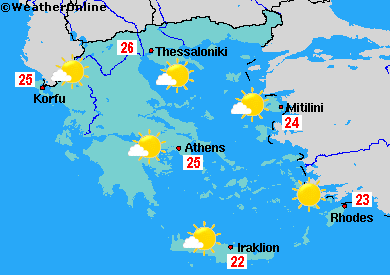.....τέταρτο πακέτο λιτότητας μέσα σε ένα χρόνο. Η πιστοληπτική ικανότητα της χώρας υποβαθμίστηκε σε καθεστώς σχεδόν «σκουπίδι» και οι αποδόσεις των 10ετών ομολόγων εκτινάχθηκαν πάνω από το 8%. Οι οικονομίες της Ελλάδας και της Ιρλανδίας, των δύο χωρών της Ευρώπης που «διασώθηκαν», συρρικνώνονται ταχύτερα απ’ όσο αναμενόταν και οι αποδόσεις των ομολόγων, σχεδόν στο 13% για την Ελλάδα και πάνω από το 10% για την Ιρλανδία, παραμένουν επίμονα υψηλές. Οι επενδυτές δεν πιστεύουν ότι η στήριξη θα επιτύχει. Εχουν δίκιο. Οι οικονομίες αυτές βρίσκονται σε μη διατηρήσιμη πορεία, όμως όχι λόγω έλλειψης προσπάθειας των κυβερνήσεών τους. Και στις τρεις χώρες, οι προοπτικές μοιάζουν «μαύρες» κυρίως λόγω λαθών που έγιναν σε Βρυξέλλες, Φρανκφούρτη και Βερολίνο.
IT IS a measure of European politicians’ capacity for self-delusion that Angela Merkel, Germany’s chancellor, called the euro-zone summit on March 24th-25th a “big step forward” in solving the region’s debt crisis. Something between a fudge and a failure would be more accurate. The leaders fell short on almost every task they set themselves. They agreed on a “permanent” rescue mechanism to be introduced in 2013, but couldn’t fund it properly, because Mrs Merkel refused to put up money her finance minister had pledged. The Brussels gathering did little to help Greece, Ireland and Portugal, the zone’s most troubled economies. Their situation is getting worse—and Europe’s leaders bear much of the blame.
Portugal’s prime minister resigned on March 23rd after failing to win support for the fourth austerity package in a year. The country’s credit rating was slashed to near-junk status on March 29th, while ten-year bond yields have risen above 8% as investors fear Portugal will have to turn to the European Union and the IMF for loans. The economies of both Greece and Ireland, Europe’s two “rescued” countries, are shrinking faster than expected, and bond yields, at almost 13% for Greece and over 10% for Ireland, remain stubbornly high. Investors plainly don’t believe the rescues will work.
They are right. These economies are on an unsustainable course, but not for lack of effort by their governments. Greece and Ireland have made heroic budget cuts. Greece is trying hard to free up its rigid economy. Portugal has lagged in scrapping stifling rules, but its fiscal tightening is bold. In all three places the outlook is darkening in large part because of mistakes made in Brussels, Frankfurt and Berlin.
At the EU’s insistence, the peripherals’ priority is to slash their budget deficits regardless of the consequences on growth. But as austerity drags down output, their enormous debts—expected to peak at 160% of GDP for Greece, 125% for Ireland and 100% for Portugal—look ever more unpayable, so bond yields stay high. The result is a downward spiral.
As if that were not enough, the European Central Bank in Frankfurt seems set on raising interest rates on April 7th, which will strengthen the euro and further undermine the peripherals’ efforts to become more competitive (see article). Some politicians are still pushing daft demands, such as forcing Ireland to raise its corporate tax rate, which would block its best route to growth. Most pernicious, though, is the perverse logic of the euro zone’s rescue mechanisms. Europe’s leaders won’t hear of debt reduction now, but insist that any country requiring help from 2013 may then need to have its debt restructured and that new official lending will take priority over bondholders. The risk that investors could face a haircut in two years’ time keeps yields high today, which in turn blights the rescue plans.
Home truths from Washington This newspaper has argued that Greece, Ireland and Portugal need their debt burdens cut sooner rather than later. That case is stronger than ever, not only because today’s approach is failing but because the risks of restructuring are falling. The spectre of contagion is receding. Spain, whose bond yields have fallen and whose spreads with Germany have tightened, has distanced itself from Portugal. Behind the scenes, sovereign-debt specialists are devising ways to minimise the impact of an “orderly restructuring” on banks. Most banks in the core of the euro zone can withstand a hit from the three small peripherals.
The big obstacle is not technical but political. Since many at Europe’s core, particularly the ECB, remain implacably opposed to debt restructuring, the pressure has to come from elsewhere—not least from the peripheral economies themselves. Ireland’s new government is talking about forcing the senior bondholders of its bust banks to take a hit. Greece should stop pretending that it can bear its current debt burden and push for restructuring. But the best hope lies with the IMF. Its economists have the most experience of debt crises. Some privately acknowledge that debt restructuring is ultimately inevitable. It is time the Fund’s top brass said so publicly and, by refusing to lend more without a deal on debt, pushed Europe’s pusillanimous politicians into doing the right thing.
Πηγή


























Του Βασίλη Τσεκούρα
ΑπάντησηΔιαγραφήΕρωτηματικά προκαλεί το σημερινό δημοσίευμα του γερμανικού Der Spiegel που έχει προκαλέσει την παρέμβαση της Ελλάδας, της Κομισιόν και του ΔΝΤ.
Σύμφωνα με άρθρο που δημοσιεύει αύριο, χωρίς να κατονομάζει πηγές, αναφέρει ότι ο διεθνής οργανισμός, ζητά από την Ελλάδα να προχωρήσει άμεσα σε αναδιάρθρωση του χρέους.
Με καθυστέρηση λίγων ωρών, το ΔΝΤ διέψευσε το άρθρο, λέγοντας χαρακτηριστικά στο δίκτυο Reuters, δια στόματος εκπροσώπο του: “Όπως έχουμε πει επανειλημμένα το ΔΝΤ υποστηρίζει τη θέση της ελληνικής κυβέρνησης όσον αφορά τη μη αναδιάρθρωση χρέους και την αποφασιστικότητά της να εκπληρώσει τις υποχρεώσεις της”.
Αυτό ήταν μια απάντηση στο δημοσίευμα που ήθελε το ΔΝΤ να κάνει στροφή 180 για την Ελλάδα. Ερωτηματικά παραμένουν γύρω από τη διφορούμενη στάση της Κομισιόν που απάντησε ότι δεν υπάρχει λόγος να γίνει αυτή η κίνηση “τώρα”.
Το παρασκήνιο γύρω από το θέμα θεωρείται έντονο, με την ελληνική πλευρά να απορρίπτει κάθε ενδεχόμενο αναδιάρθρωσης.
Πάντως, η κατάσταση στην ευρωπαϊκή και την ελληνική οικονομία θεωρείται ιδιαίτερα ρευστή, καθώς βλέπουμε έντονη σεναριολογία και άμεσες διαψεύσεις σε κάθε δημοσίευμα που αναφέρεται στην κρίση χρέους.